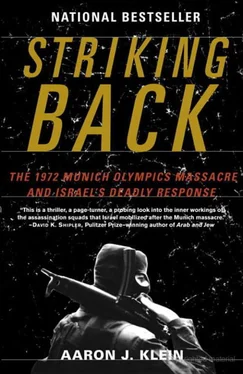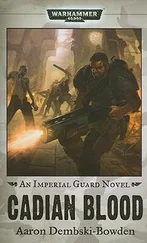The justness, efficacy, and value of assassinations have been debated throughout the current conflict. Strike and counterstrike have come in rapid succession. The debate, ebbing and flowing, remains unresolved.
APPENDIX: THE KOPEL REPORT
The fifteen-page top secret report came out in only three copies. Pinchas Kopel, Moshe Kashti, and Avigdor Bartel did exactly as Golda had asked: the anemic report refrained from accusing anyone of negligence or demanding the dismissal of any high-ranking officials and officers. Instead, Kopel and company passed the buck to the head of the Shabak. He, the report suggested, “can draw conclusions, as he sees fit, about those officials who are singled out in this report for unbecoming conduct in all matters concerning the security and safety of the Olympic delegation, as it was defined before the Munich disaster.”
The report concluded, “The organizational structure and existing procedures of security for Israeli delegations abroad are not sufficient to address the current situation. Therefore, it is suggested that a new department be created in the Shabak to exclusively handle all matters of official security abroad. The new department will serve as the sole organization charged with dispensing advice and providing security for delegations as the government sees fit.” The Kopel Report dryly conveys the chain of events that led to the security failures in Munich.
When a few, minimal conclusions from the report were talked about, it drew fire from the Knesset and the press. Many columnists and politicians expected an earthquake: they received a tremor. Yosef Harmelin, head of the Shabak, recommended the termination of employment for the embassy security officer in Bonn, Germany, and two security officers in the Shabak, including the commander of the security division.
To the grieving families the measures were insufficient. At the special parliamentary session convened after the massacre, Ilana Romano, the widow of Yossef Romano, turned to Deputy Prime Minister Yigal Allon and asked him what the government planned to do about the Israeli security lapses. Allon informed her that three security officials had been removed from their posts. When asked to clarify whether removed meant fired or rotated through the system, Allon answered admonishingly, “Would you like to see their families starve?”
Despite pressure, the report was never made public. It was sent to be buried in the state archives. Accounts of its conclusions and general tone varied wildly. Some columnists labeled it scathing, others bland and lukewarm. Twenty years after the massacre, in the summer of 1992, Ankie Spitzer and Ilana Romano met with Prime Minister and Defense Minister Yitzhak Rabin in his office in Tel Aviv. Spitzer asked Rabin to see the classified report, promising that she would read it to satisfy her own curiosity, but refrain from divulging its contents. “The report is important to me,” she says. “I wanted to know how the Israeli authorities addressed the failures.” Having never seen the contents of the report, Rabin asked his chief of staff, Eitan Haber, to hunt it down in the state archives, look it over, and recommend a course of action. At a different meeting several weeks later the matter of the report was brought up again. Haber told Spitzer that he would not be willing to show her so as much as its cover.
For the next thirteen years, the report lay undisturbed in the archives. In early 2005, thirty-two years after it was written, I issued a formal request to the manager of the state archives in Jerusalem to examine the Kopel Report. I received a negative response. The Shabak, I was told, is still against releasing the document. On February 15, 2005, I wrote to the Shabak spokesperson requesting that they reevaluate the classified nature of the report. Several days later she responded. The Shabak had no objection to the report being made public. And so it was.
When I began this book, it proved difficult to penetrate the Mossad’s wall of silence surrounding the assassination operation following the Munich Massacre. Gradually, I earned the trust of a few key officers; I also learned that I was the first person outside their inner circle that they had spoken to. Their trust earned me the confidence of others. I thus, in the course of researching this book, conducted extensive interviews with more than fifty individuals, including ex-heads of units in the Mossad and Israeli Intelligence; former combatants and senior analysts; and former heads of the Mossad. I also spoke with high-ranking officials on the Palestinian side. Most of my sources insisted on anonymity, for their own safety and protection. In some cases I have changed their names or referred to them by initials. For purposes of accuracy, I sometimes, when I felt it necessary, gave individuals described the opportunity to review my account and to comment on it. When possible, interviews were cross-checked for accuracy. I also examined internal and top secret government documents such as the Kopel Report and examined firsthand many of the sites described in this book, from Paris to Munich. In some cases, for dramatic effect, minor details of certain instances have been changed, in keeping with the known habits and demeanor of participants.
Some of the sources that helped me write this book prefer not to be thanked in writing. For these former Mossad, Military Intelligence, and Shabak officers, secrecy is both habit and necessity. They would have liked their names in print, but fear of revenge, exacted on them and their family members by the children and grandchildren of the assassinated, kept them from revealing their name and rank, and I have obscured both in these pages. I could not in good conscience assuage that fear. All I can do is thank them anonymously for their willingness to reveal, assist, explain, and correct my descriptions of events they took part in. More remains unknown than known, but thanks to these officers, analysts, combatants, and commanders, the public is given the opportunity to examine previously unviewed episodes from within their covert world. These dedicated, uniformly shrewd people, many of whom I now consider as friends, did this without taking credit. In an effort to preserve their anonymity, I’ve changed some of their names.
This is also the place to thank all of my supportive friends and acquaintances, who provided invaluable help during the research and writing stages of the manuscript, enriching it with their insights, comments, and corrections: Colonel (res.) Amnon Biran, Colonel (res.) Muki Betzer, Yossi Smandar, Yoav and Orly Simon, Shlomi Kenan, Netta Ziv-Av, Aviv Levy, Nitza Tzameret, Ofer Lefler, Moshe Shai, Naomi Politzer, and Shimshon Issaki in Israel; Felice Maranz and Yaala Ariel-Joel in the United States; Guy Cohen in Munich; and François Gibault and Yael Scemama, my French connections in Paris.
Special thanks to Colonel (res.) Avner Druck, for his extended and genuine efforts; Colonel (res.) Yossi Daskal, for his balanced perspective; Ziv Koren, our talented and well-connected photography editor; Ankie Spitzer, for unconditionally opening her heart and sharing her experiences; Lisa Beyer, for her endless insight and encouragement; Matt Rees, Jerusalem’s Time magazine bureau chief, for all his guidance and professional insights; Jean Max, for her sharp editing eye; Mitch Ginsburg, for his tireless wit, faithful translation, and dedication to the mission; Deborah Harris, my ceaselessly supportive agent, for granting me the opportunity to tackle this project; Philippa Brophy, our American agent, who oversees the important details of our lives; Will Murphy, my editor, a brilliant man, who conjured the idea of writing this book well before it became popular.
Читать дальше












